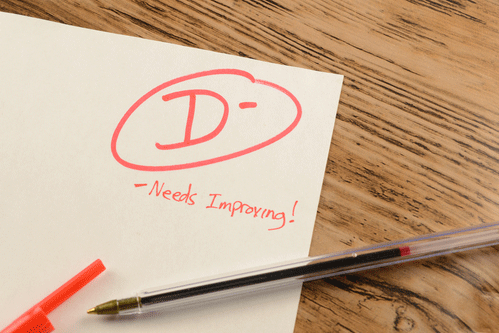The Benefits of Critique Partners
Photo Credit: Shutterstock
Critique partner? That sounds suspiciously like school, reminiscent of the dread you felt when the teacher was passing out corrected writing assignments. You sat and held your breath and waited, nervously, because of course there was a grade involved. In my experience, entrusting critique partners with my work is nothing like this. Your partners may use a red pen, but they won’t give you an actual grade.
I have been in as many as three groups at a time with generally 5-6 people in each group, not including myself. That equates into a lot of critiquing and responsibility! Because mindful critiquing is a responsibility – a matter of honor. You’ve pledged to other writers to read their work and provide constructive, thoughtful criticism, which also takes a lot of time, but the added bonus of having so many fellow writers in a group is that you, too, receive lots of feedback.
Critiques vary and serve different purposes. Sometimes critiques are for content – basically, an author wants to know if he is telling a good story. Does the story have a plot that unfolds in one or more arcs, is it fleshed out with interesting characters, does it contain the necessary conflict and tension to keep a reader engaged, does the story provide a satisfying conclusion, so on and so forth. Other critiques are for editing – observing the mechanics of good writing by fixing grammar and punctuation.
Skill, kindness, and patience are required to be a good critique partner, the success of this endeavor balancing on that fulcrum of trust. When a writer has worked on a project for a long time, there is definitely the tendency to develop tunnel vision – he simply can’t see the story in its whole any longer - some obvious flaws may pass him by, weak plot points are no longer evident. It takes new eyes and perspective to help a writer refine a work-in-progress. This is one of the benefits of having critique partners.
Another benefit - not required - but definitely a bonus to having critique partners is they act as a sounding board to tell you whether your idea is viable or not. They do this by knowing “comp titles,” which simply refers to the already published books out there that might be similar to yours. Writers are prolific readers. With the quantity of books in the world today, they can help tremendously by reading the books you can’t possibly keep up with all by yourself. You'll think you have the most unique idea only to hear, “Oh that reminds me . . .” or “You know this idea’s been done before, don’t you?” or “I just saw an announcement in Publisher’s Weekly – so and so just published a book about that very subject. . .” This last one's a red light! Depending on the exact nature of the new book, it can be your clue to not waste any more energy on the idea. Someone beat you to it, and publishers are reluctant to flood the market with too many similarly themed books. Or your partners can say, “This is similar but different enough . . .” That’s your green light to keep writing.
Like so many things in life, critique groups are living organisms, kind of like the annual flowers you plant every year. They have a season with members coming and going for all kinds of reasons. Sometimes their lives have changed, and personal demands make it hard for them to keep participating; they change jobs, they move, they get married, they get divorced, they become parents or grandparents, they lose momentum, or their interests change. And sometimes people just give up. Becoming a published author is very hard work. There are many hurdles to clear, there’s a lot of competition “out there” and sometimes the challenge doesn’t feel worth it anymore.
This is not a bad thing, it’s simply the attrition we see in other areas of our lives and in our communities. Think about that restaurant you love and have patronized for decades. Then it closes. The owner is ready to do something else. Not good. Not bad. Just life.
Related Posts:
A Writers Life: Critique Partner Relationships


